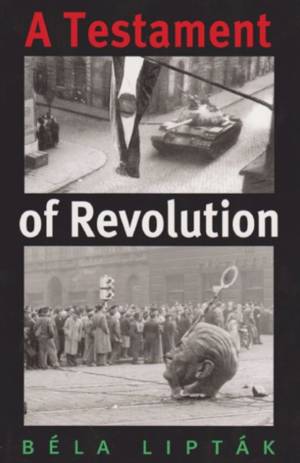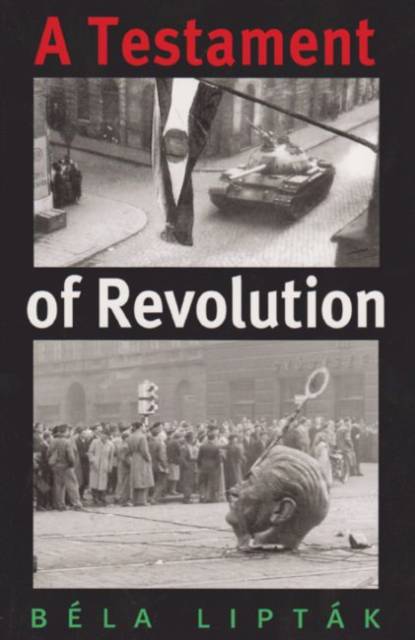
- Retrait gratuit dans votre magasin Club
- 7.000.000 titres dans notre catalogue
- Payer en toute sécurité
- Toujours un magasin près de chez vous
- Retrait gratuit dans votre magasin Club
- 7.000.0000 titres dans notre catalogue
- Payer en toute sécurité
- Toujours un magasin près de chez vous
Description
Terse, staccato, like a dispatch from the front, Béla Lipták's A Testament of Revolution peels away more than four decades of intervening history to give readers a vivid, firsthand look at the brief, doomed struggle of Hungarian freedom fighters against Russian oppressors. Written in 1956 in an Austrian refugee camp, where the author had fled to escape reprisals for his role in the short-lived rebellion, Lipták's memoir compellingly sketches the conflict between university students, factory workers, and Hungarian nationalists on one side and the hated Hungarian secret police and Russian army troops on the other. With an engineer's eye for detail, Lipták draws the reader hour-by-hour into events, relating verbatim dialogue still fresh in his mind. Strikes in nearby Poland sparked the formation of an independent union of university students in Hungary that October. Matters escalated as factory workers joined Hungarian students to express solidarity with Poland. What began as a bid for greater freedom of speech and more participation in the national government quickly developed into insurrection and armed repression. Hungarian secret police and Russian troops moved together to suppress the students. Readers will bear witness as armed but untrained citizens proclaim any student wearing a nationalist tricolor armband a commander they will follow in rebellion--and they will recoil in horror as many of these revolutionaries fall in undeclared street battles. In a memoir that is both history and a saga of his coming of age, Lipták relates his transformation from carefree university student to impromptu revolutionary leader. His story unfolds with unsparing honesty as he makes the reader privy to his conflicts, faults, and failures of judgment and courage, laying bare his struggles with the enemy and with himself. A Testament of Revolution is the story of one man and Every Man caught up in events beyond his control, as waves of individual integrity and patriotism foundered on the rocky shoals of oppression and international political exigencies.
Spécifications
Parties prenantes
- Auteur(s) :
- Editeur:
Contenu
- Nombre de pages :
- 224
- Langue:
- Anglais
- Collection :
- Tome:
- n° 13
Caractéristiques
- EAN:
- 9781585446421
- Date de parution :
- 04-04-01
- Format:
- Livre broché
- Format numérique:
- Trade paperback (VS)
- Dimensions :
- 157 mm x 236 mm
- Poids :
- 326 g

Les avis
Nous publions uniquement les avis qui respectent les conditions requises. Consultez nos conditions pour les avis.






